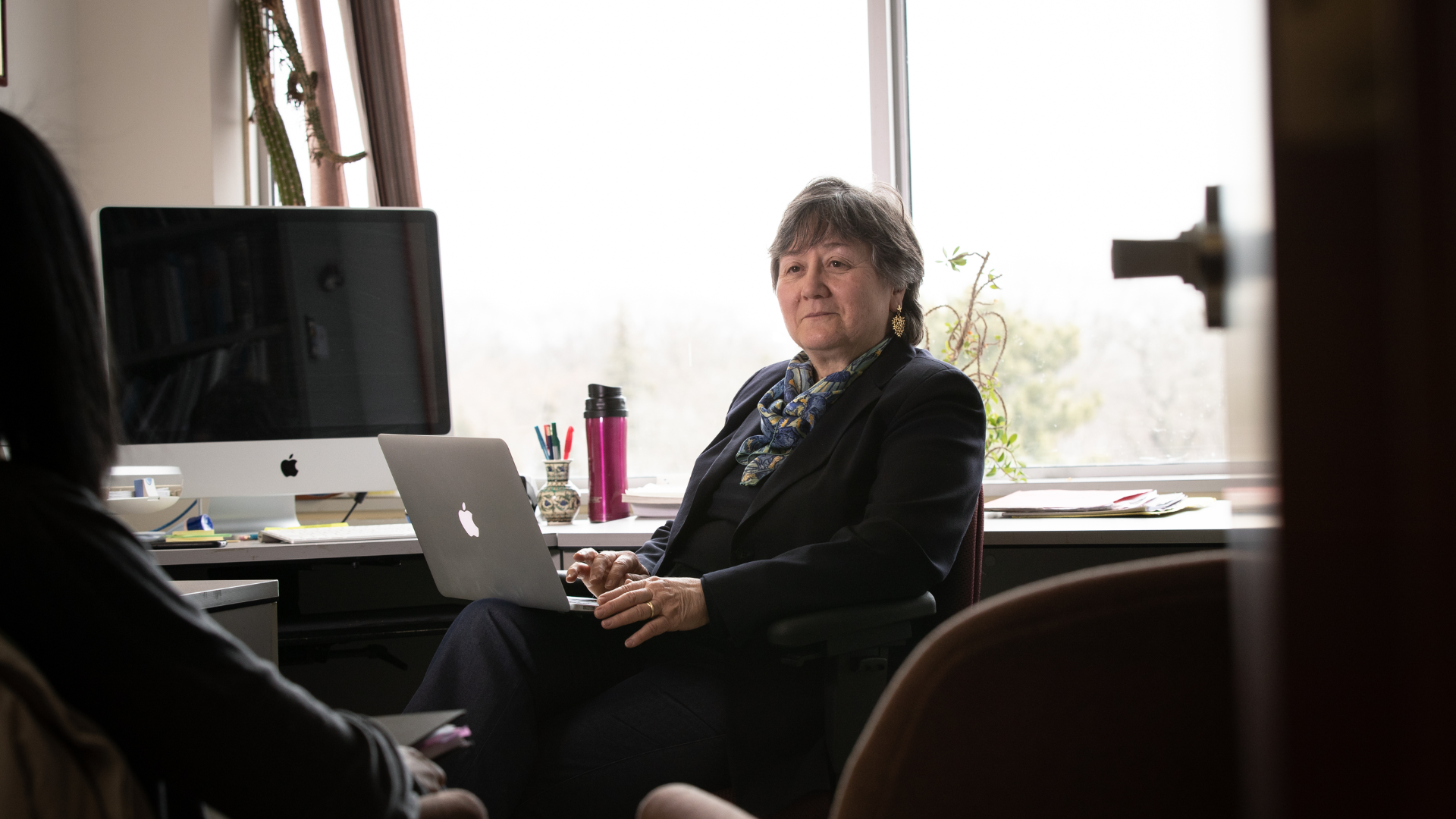HUMAN RESOURCES AND MANAGEMENT RESEARCH STAFF
Fair play: Doing right by employees ultimately pays off, according to Isik Zeytinoglu
April 17, 2018 ·
Contributed by: Sonia Verma, Manager, Strategic Communications

Isik Zeytinoglu’s research shows that being supportive of workers makes them healthier, more productive, and more likely to stick around. In recent years, she has studied the challenges personal support workers (PSWs) face on the job and how to create a healthier work environment for them.
As of April 1, casual, part-time, and temporary workers in Ontario must be paid the same as full-time or permanent workers when they do the same work.
“It sounds very simple when you say it like that,” says Isik Zeytinoglu, Professor, Human Resources and Management. She’s one of the experts the provincial government consulted three years ago when the Fair Workplaces, Better Jobs bill was in its formative stages.
It does sound simple, but like a lot of seemingly obvious truths about employment — happier workers are healthier; healthy workers increase productivity and are likely to stay in their jobs — it is backed up by decades of data and research, much of it done by Zeytinoglu.
Zeytinoglu, who arguably wrote the book — several books, in fact — on flexible employment and how to better support workers, has served on more than one federal labour code panel over the course of more than 30 years studying how to create healthy, equitable workplaces.
And she’s no stranger to distilling complicated research and data into simple-sounding statements.
“You end up presenting five years of research in 10 minutes,” she says of her experience speaking about the association between non-standard and flexible employment, support at work, and employer and worker outcomes at a World Health Organization event in 2012. “But they use the information you give them.”
Her research and recommendations were ultimately reflected in the WHO’s Healthy Workplace Framework.
“Now governments will apply the same models in their countries, and ultimately, those countries will have healthy workplaces where workers feel supported,” Zeytinoglu says.
“These are the places where there is trust between worker and employer, where there’s co-operation between workers and unions and employers. It’s the same philosophy that is the foundation of occupational health and safety here in Ontario,” she continues.
Zeytinoglu has been investigating occupational health and equity since 1986, when she first looked into non-standard work, employers’ flexible employment strategies, and their effects on workers.
In recent years, she has studied the challenges personal support workers (PSWs) face on the job and how to create a healthier work environment for them. She led a study focusing on PSWs, and is co-leading another study on midwives and midwifery students.
“I study musculoskeletal disorders and stress and factors that contribute to them, and the outcomes of those for individuals and organizations,” Zeytinoglu says.
Some of those outcomes are readily apparent: Workers who have a perception of insecurity in their jobs — who aren’t getting the hours or the pay they prefer — experience stress, which affects musculoskeletal disorders such as pain in the back, hands, arms, or neck.
For organizations, the outcomes are more complex: Zeytinoglu focuses on the impact of stress related to workplace practices on retention, job satisfaction, and workers’ intention to stay, all of which affect productivity.
Job insecurity is a leading source of workplace stress, Zeytinoglu says. Data from a 2015 survey showed that PSWs who were able to work their preferred hours and received support from their employers experienced lower levels of stress and were more likely to want to stay in their jobs.
“What we find is that it’s not necessarily full-time, or part-time, or even casual workers who have a higher level of stress,” she says. “What does affect stress is whether you get the kind of hours and job you want.”
“So you might be a full-time worker with benefits, but if you want to switch to part-time — or the other way round — and if your employer can’t make it happen, you start to experience stress. With greater stress comes musculoskeletal pain and a loss of job satisfaction.
“It’s the preference that is a significant factor. Sometimes people want fewer hours because they are stressed, even if it means making less money.”
In Ontario, before the new law came into effect, some employers preferred to hire contract or part-time workers so they could save on wages by paying them less than full-time or permanent employees. But Zeytinoglu’s research in 2016 showed those cost savings on pay don’t lead to greater profit or revenue for employers. In many cases, it actually lowered productivity.
And if workers were unhappy with the hours they had, or with job uncertainty, they were less likely to want to stay in those jobs, raising the spectre of retention problems: Every departing worker comes at a cost to the employer. Not only is there a loss of knowledge and a drop in productivity until a replacement is found, but the time required to recruit, hire, and train a new person can add up.
So what’s the solution? “Well, managers and administrators need to take the time and effort to ask employees what they want,” Zeytinoglu says. “It is extra work for them, but workers need to feel supported by their organization, their supervisor, even by their peers.
“When you feel your employer cares about you, you are satisfied with your job. You feel supported, you feel less stress. You’re healthier.”
And healthier, happier workers are ultimately the most productive — another simple-sounding truth of equitable employment. Here’s another: “It’s the right thing to do,” Zeytinoglu says. “It’s just.”
 Isik Zeytinoglu’s current research focuses on occupational health and safety of personal support workers in Ontario, employer flexibility strategies and non-standard employment issues, and job satisfaction, retention, and employee wellness issues in Canada. She also conducts research on human resource management issues in Turkey. She teaches PhD courses on research design and methods, as well as industrial and employment relations theory and research. She also teaches occupational health and safety management, and human resources management and industrial relations.
Isik Zeytinoglu’s current research focuses on occupational health and safety of personal support workers in Ontario, employer flexibility strategies and non-standard employment issues, and job satisfaction, retention, and employee wellness issues in Canada. She also conducts research on human resource management issues in Turkey. She teaches PhD courses on research design and methods, as well as industrial and employment relations theory and research. She also teaches occupational health and safety management, and human resources management and industrial relations.















